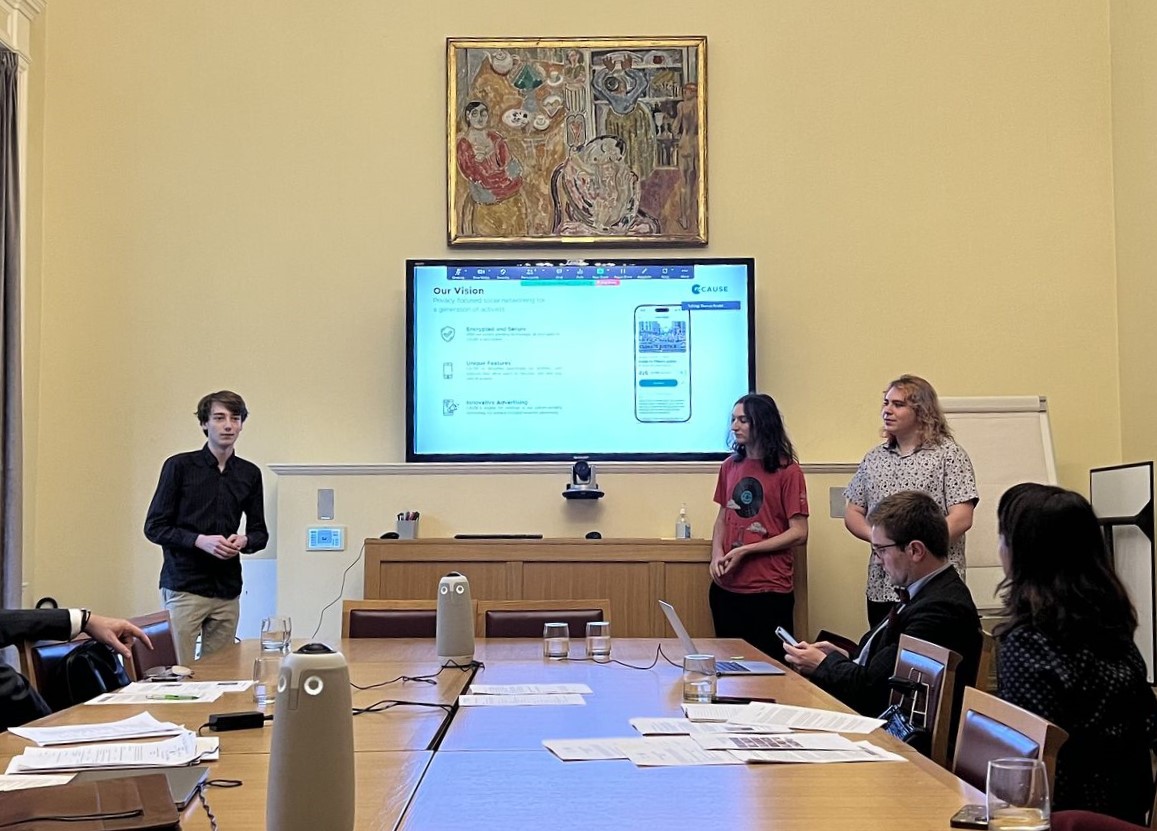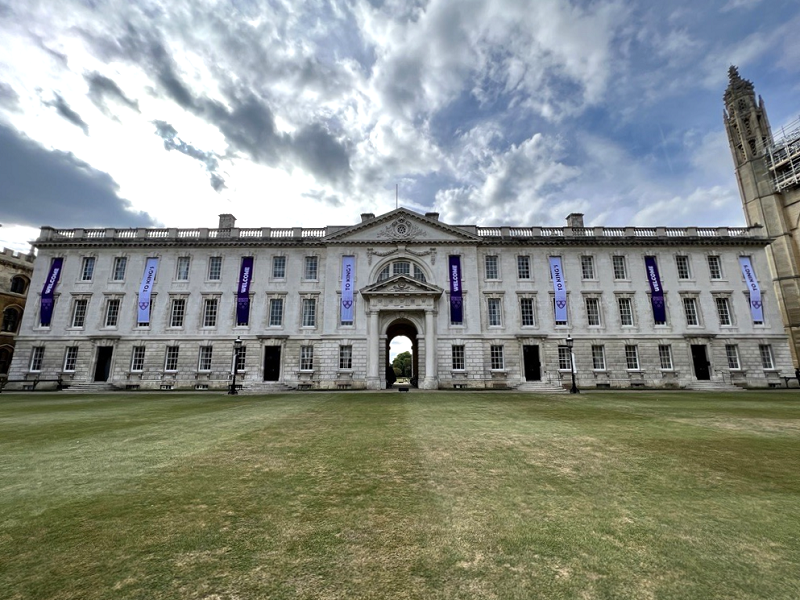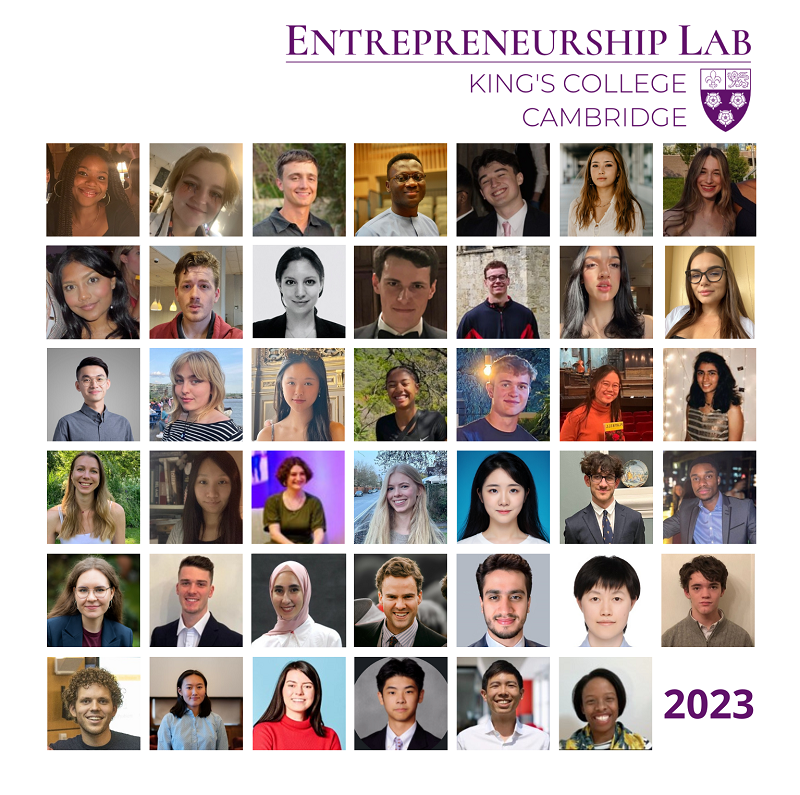For prospective students
We advise you to read the History of Art subject page thoroughly.
For offer holders
The most important preparation for History of Art at King's involves learning to train your visual memory and to develop your own critical skills. Visit as many museums and exhibitions as you can, taking descriptive notes of what you see. Visit buildings such as churches or country houses; you may find it helpful to record them photographically.
Start collecting postcards, which can be stored in a card-index box. Don't be afraid to sketch, even if you have no artistic talent. It is an excellent way of remembering images, and you will be amazed how quickly your drawings improve!
When a work of art or architecture excites you, try to analyse why it has this effect. The other essential preparation is to gain a firm grounding in iconography by improving your knowledge of the Bible and classical mythology. A good basic knowledge of European history is also extremely useful. The course does not require any specific prior knowledge of the History of Art, but you may like to read some of the following books before you start at Cambridge.
Surveys
-
E.H. Gombrich, The Story of Art (several editions)
-
H. Honour & J. Fleming, A World History of Art (several editions)
-
N. Pevsner, An Outline of European Architecture (several editions)
-
D. Watkin, A History of Western Architecture, London 1986
-
J. Summerson, Architecture in Britain, 1530-1830 (Pelican History of Art), (several eds.)
Reference books
You may like to buy the following titles, which will be useful throughout the course:
-
Giorgio Vasari, Lives of the Artists, selected lives trans. by G. Bull, Penguin, 2 vols., 1965 & 1987
-
Peter & Linda Murray, Dictionary of Art & Artists, Penguin (several editions)
-
J.R. Hale (ed.), A Concise Encyclopaedia of the Italian Renaissance (several editions)
-
James Hall, Dictionary of Subjects and Symbols in Art, John Murray, 1974
-
John Fleming, Hugh Honour, Nikolaus Pevsner, The Penguin Dictionary of Architecture (several editions)
Historical Approaches
During the course you will study the critical approaches of past authors, many of whom offer inspiring views of the subject. Examples include:
-
C. Baudelaire, The Painter of Modern Life & other Essays, ed. J. Mayne (several eds.)
-
B. Berenson, The Italian Painters of the Renaissance (several eds.)
-
J. Burckhardt, The Civilisation of the Renaissance in Italy (several eds.)
-
R. Fry, Cézanne: a Study of his Development, London 1927
-
E. Mâle, The Gothic Image, London 1961
-
G. Morelli, Italian Painters: Critical Studies of their Works, London 1892
-
E. Panofsky, Renaissance and Renascences in Western Art, Stockholm 1960
-
E. Panofsky, Studies in Iconology, (several eds.)
-
M. Podro, The Critical Historians of Art (several eds.)
-
J. Reynolds, Discourses on Art, ed. R. Wark (several eds.)
-
F. Saxl, Lectures, London 1957
-
M. Schapiro, Word and Image, Leyden 1972
-
H. Wölfflin, Principles of Art History (several eds.)
Special topics
Finally, some suggestions for more specialised reading:
-
M. Baxandall, Painting and Experience in Fifteenth-Century Italy, 2nd ed., Oxford1988
-
J. Gage, Colour and Culture: Practice and Meaning from Antiquity to Abstraction, London 1993
-
E.H. Gombrich, Art and Illusion (several eds.)
-
F. Haskell & N. Penny, Taste and the Antique, New Haven & London, 1981
-
M. Kemp, The Science of Art: Optical Themes in Western Art from Brunelleschi to Seurat, New Haven & London, (several eds.)
-
Griselda Pollock, Vision and difference: femininity, feminism and the histories of art, London, 1988
-
John Summerson, The Classical Language of Architecture (several eds.)
-
J. White, The Birth and Rebirth of Pictorial Space (several eds.)
For more information, please consult the Department of History of Art website via the link below.



